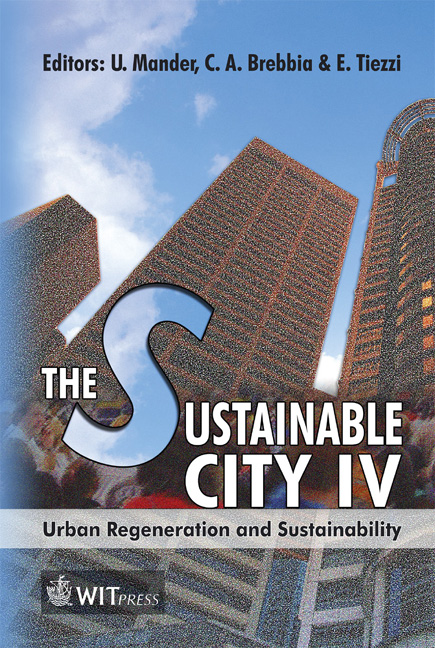Linking Perceptions Of Health To Neighbourhood Environment In The Lisbon Metropolitan Area, Portugal
Price
Free (open access)
Transaction
Volume
93
Pages
9
Published
2006
Size
323 kb
Paper DOI
10.2495/SC060691
Copyright
WIT Press
Author(s)
H. Nogueira, P. Santana & R. Santos
Abstract
The past century has seen the rise of an urban environment that differs greatly from anything that has gone before. Urbanization has brought many benefits, but has also raised concerns about sustainability. Urban/suburban sustainability goes hand in hand with physical and social environment sustainability, i.e. the challenge of creating sustainable, healthy communities. Development must occur with a sense of place, history and cultural distinctiveness, with a view to reducing inequality between groups. In other words, proper development and planning can create healthy communities. Research into the role of the social and material environment in determining healthy communities has highlighted the need to use more innovative data in describing geographical areas, in spite of the difficulty and time involved in the collection, utilisation, comparison and interpretation of such data. This paper is based on a case study of empirical data collected in Portugal. Logistic regression models were used to measure the relationship between the material and social environment and self-rated health (representing quality of life and wellbeing). We used new contextual measures, created through PCA and individual data from the National Health Survey for Lisbon Metropolitan Area (LMA). The results show the importance of neighbourhood (social and material environment) in determining health, alongside traditional factors such as age, social class and lifestyles. In LMA, a high level of political engagement and community participation, and good access to public transport and to health services improve self-rated health scores. Associations were found to be independent of gender, age, social class (occupation and education), economic activity and lifestyle (physical activity or smoking). Moreover, both the features of social and material environment and the magnitude of association with self-rated health are different for both genders. Keywords: neighbourhood, self-rated health, individual explanations, ecological explanation, Lisbon Metropolitan Area, Portugal.
Keywords
neighbourhood, self-rated health, individual explanations, ecologicalexplanation, Lisbon Metropolitan Area, Portugal.





